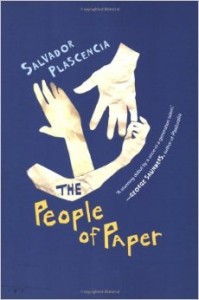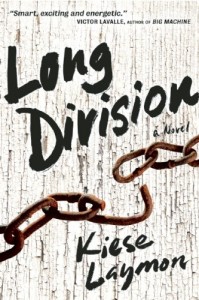By Colorado Review Associate Editor Zach Yanowitz
 I’m a poet. I’m in graduate school for poetry. As a result, that’s largely what I write and read. Sure, I’ve been obsessively keeping up with the news for the last few months and I read my fair share of comic books, but part of me sort of thought that these three years in the MFA would mean a line drawn in the sand: fiction writers over there with the novels and the book sales, poets over here with the verse and the ennui. Not so, this semester. I’m currently taking a graduate course in contemporary fiction in which we’re reading a new novel every single week. As it turns out, I may be into fiction?
I’m a poet. I’m in graduate school for poetry. As a result, that’s largely what I write and read. Sure, I’ve been obsessively keeping up with the news for the last few months and I read my fair share of comic books, but part of me sort of thought that these three years in the MFA would mean a line drawn in the sand: fiction writers over there with the novels and the book sales, poets over here with the verse and the ennui. Not so, this semester. I’m currently taking a graduate course in contemporary fiction in which we’re reading a new novel every single week. As it turns out, I may be into fiction?
So far this semester I have read Almanac of the Dead by Leslie Marmon Silko, a sprawling apocalyptic tale of gunrunners and anti-colonial revolutionaries. I read Personal Days by Ed Park, which is like if Don DeLillo had written the TV show The Office. I read Jennifer Egan’s A Visit from the Goon Squad, a collection of linked short stories about punk music, nostalgia, and growing up. I read The People of Paper by Salvador Plascencia, a deeply original novel which uses the tropes of magical realism to rebel against its own narrative. I read Long Division by Kiese Laymon, a story of teenagers in Mississippi that’s as much about race and time travel as it is hip-hop and adolescence. Right now I’m in the middle of Ruth Ozeki’s A Tale for the Time Being, which melds Japanese cultural identity and isolation with the ethics of writing and suicide. Later this semester we’ll read Colson Whitehead’s The Underground Railroad, Chimamanda Ngozi Adichie’s Americanah, and Xu Bing’s Book from the Ground. Needless to say it’s been a busy few months.
Where poetry crystallizes and abstracts, fiction expands and elucidates. This may be nothing new for many of our readers, but I came into this semester having read perhaps one novel in the  last three or four years. I’m not averse to fiction in general, but my academic and creative leanings have gone in the other direction as I became more serious about writing. I’ve also noticed a shift in my poetry since I’ve been totally consumed by prose. I’m paying more attention to the larger structure of projects, to narrative cohesion. I’m thinking in more concrete ways about setting, about what can be achieved with visceral images instead of clever abstractions. I’m pushing toward a more authentic vernacular and—dare I say it—actual dialogue.
last three or four years. I’m not averse to fiction in general, but my academic and creative leanings have gone in the other direction as I became more serious about writing. I’ve also noticed a shift in my poetry since I’ve been totally consumed by prose. I’m paying more attention to the larger structure of projects, to narrative cohesion. I’m thinking in more concrete ways about setting, about what can be achieved with visceral images instead of clever abstractions. I’m pushing toward a more authentic vernacular and—dare I say it—actual dialogue.
This isn’t to say that I have any interest in becoming a fiction writer. Honestly, I don’t think I have the patience for it but it’s been interesting to see the tangible effects that exclusively reading novels has had on my poetry. I realize that “being a well-rounded reader” isn’t a shocking concept, but I arrived at it in my own time. Now if only we could get fiction writers to read contemporary poetry, like the lovely poems in our newest issue.